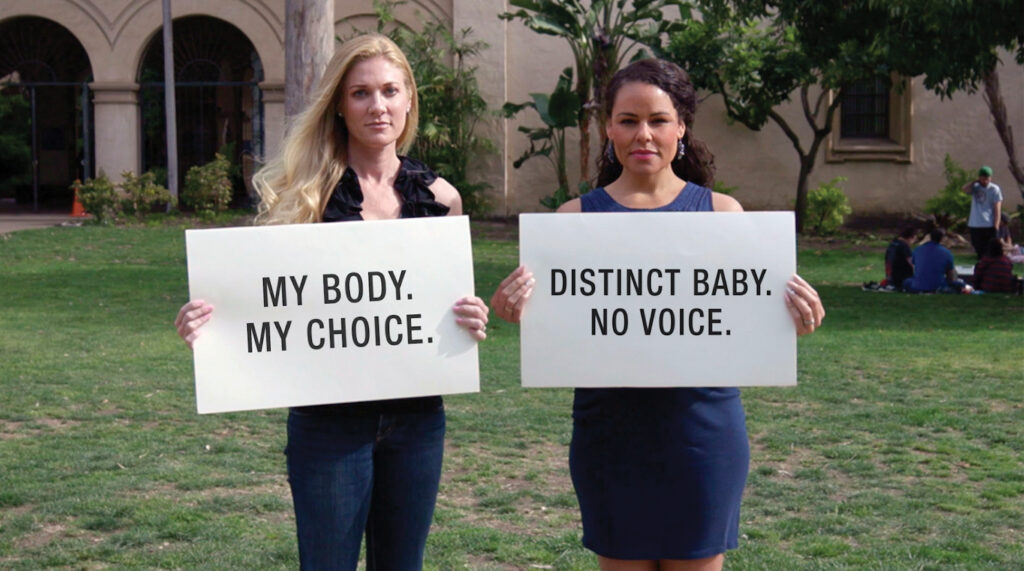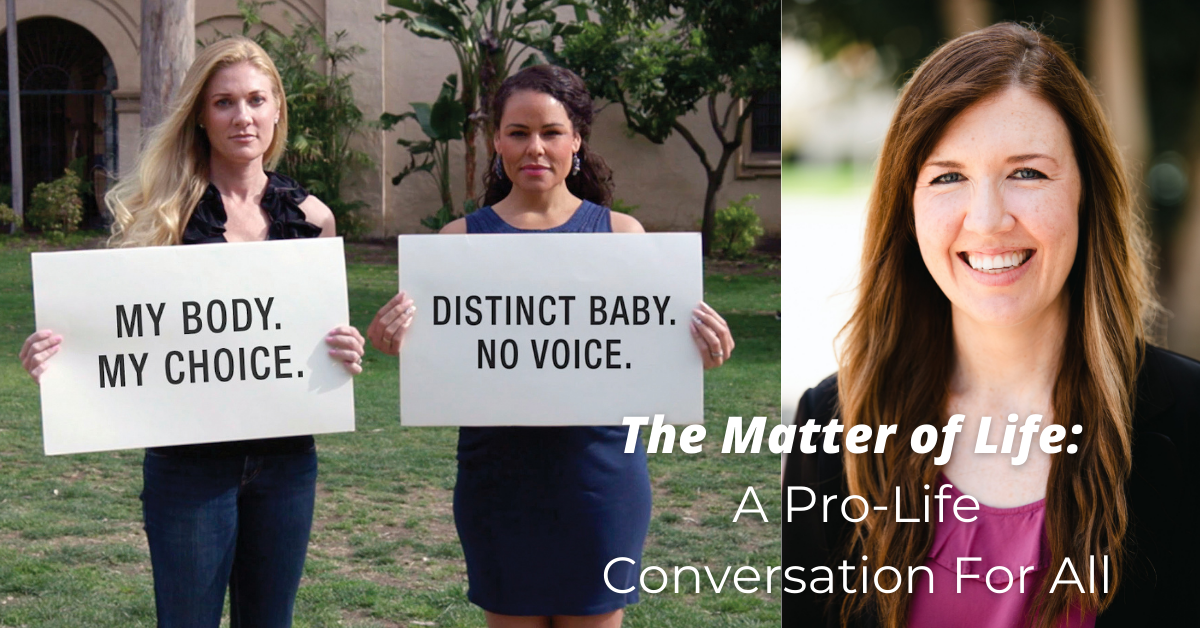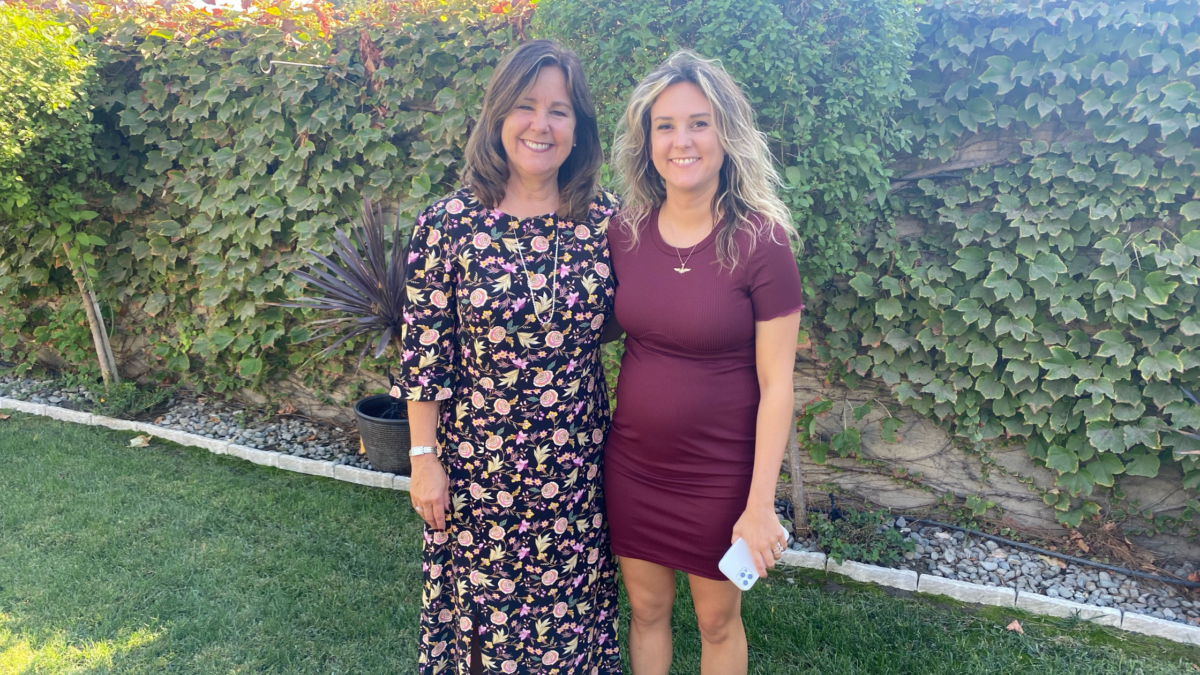What is the difference between being personally pro-life and actively pro-life? Sometimes a friend inviting you to a life-changing presentation. That’s what happened to Tracy Robinson, director and producer of the new documentary film The Matter of Life.
Robinson, a Christian, knew she’d never have an abortion herself. She never wanted to enforce her belief on others until 2016 when Robinson attended a presentation from Stand To Reason’s Alan Shlemon called The Case Against Abortion Choice. She learned that an unborn baby is, in fact, a human life.
“I wasn’t really that pro-life,” she said. “I was very in the mushy middle and apathetic — didn’t really give it much thought, the abortion issue. … [After the presentation my] mind was blown. It just really struck me this message and how obvious the truth was, and more importantly, the fact that nobody had told me this before.”
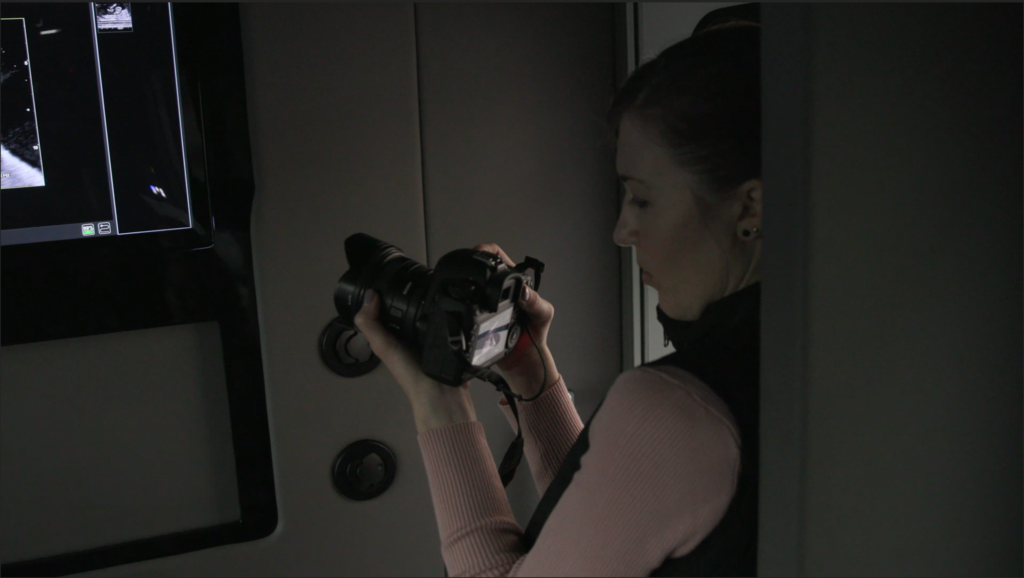
Making The Matter of Life
The experience lit a fire in Robinson to share what she learned with the world. The main vehicle to do this: using her skills as a filmmaker. Robinson spent the next several years doing research, interviewing pro-life leaders and unpacking the science of embryology to create her first feature-length film, The Matter of Life, around the central question “Are the unborn one of us?””
As a Christian, Robinson’s faith is central to her own heart for the unborn. She uses her art to invite the conversation to everyone who considers themselves pro-life or is interested in helping pregnant women find an alternative to abortion. One of the strongest figures featured in the movie is Terrisa Bukovinac, founder and president of Pro-Life San Francisco, an atheist and feminist. In the film, she declares, “I believe that being pro-life is the most progressive value that we can have. It protects the most innocent, most vulnerable among us.”
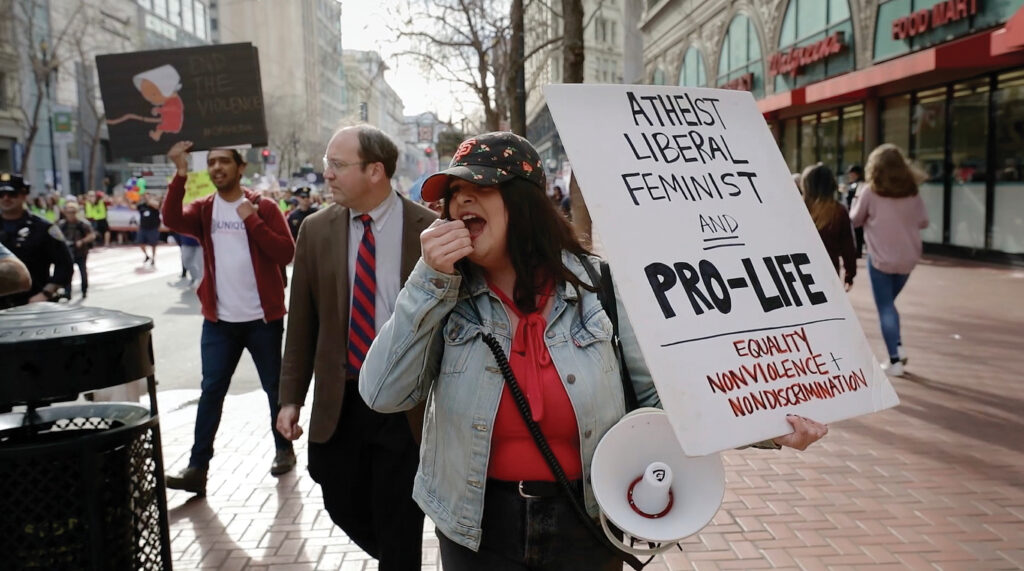
The Movement Isn’t Just Religious
Robinson was very inspired meeting Bukovinac and Destiny Herndon De La Rosa: founders of New Wave Feminists. Tracy saw how much bigger the issue is than religion or politics.
“You don’t have to use Bible verses or any theological points in order to make the case for life,” she said. “This is on the side of science. And that’s what made me so passionate. This is a message for everybody.”
What The Documentary Is About
The Matter of Life explores the history of the abortion movement and how the suffragettes and the original feminists opposed abortion because they thought it was degrading to women. The push toward the legalization of abortion leading up to the Roe v. Wade decision in 1973 was mostly led by men. The film unpacks how Dr. Bernard Nathanson and journalist Lawrence Lader convinced feminist leader Betty Friedan to join their cause. It reveals how the pro-choice movement actually offers women a lack of choice. The abortion industry is a business that doesn’t necessarily have the best interests of women in mind.
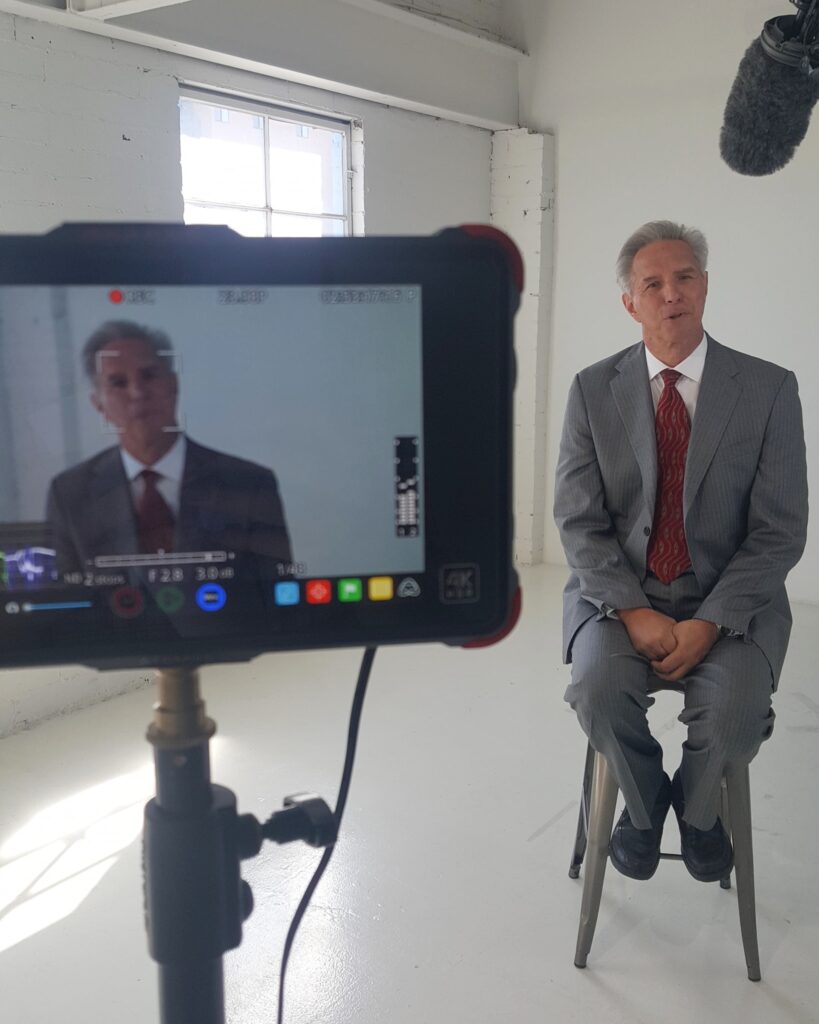
“What I’ve observed just as a filmmaker — I’m not exactly an expert — is that they’re very protective because that’s where the money is,” Robinson said. “That’s where the power is. Their business runs on people being deceived left and right. Policy is formed out of this money, this abortion money.”
Collaborating with Pro-life Organizations
The Matter of Life offers information about organizations like Embrace Grace and Save the Storks who empower women to keep their babies. As she was learning more about the pro-life movement for herself, Robinson’s work doing video projects for pregnancy resource centers further drove her to tell women about the actual choices they do have.
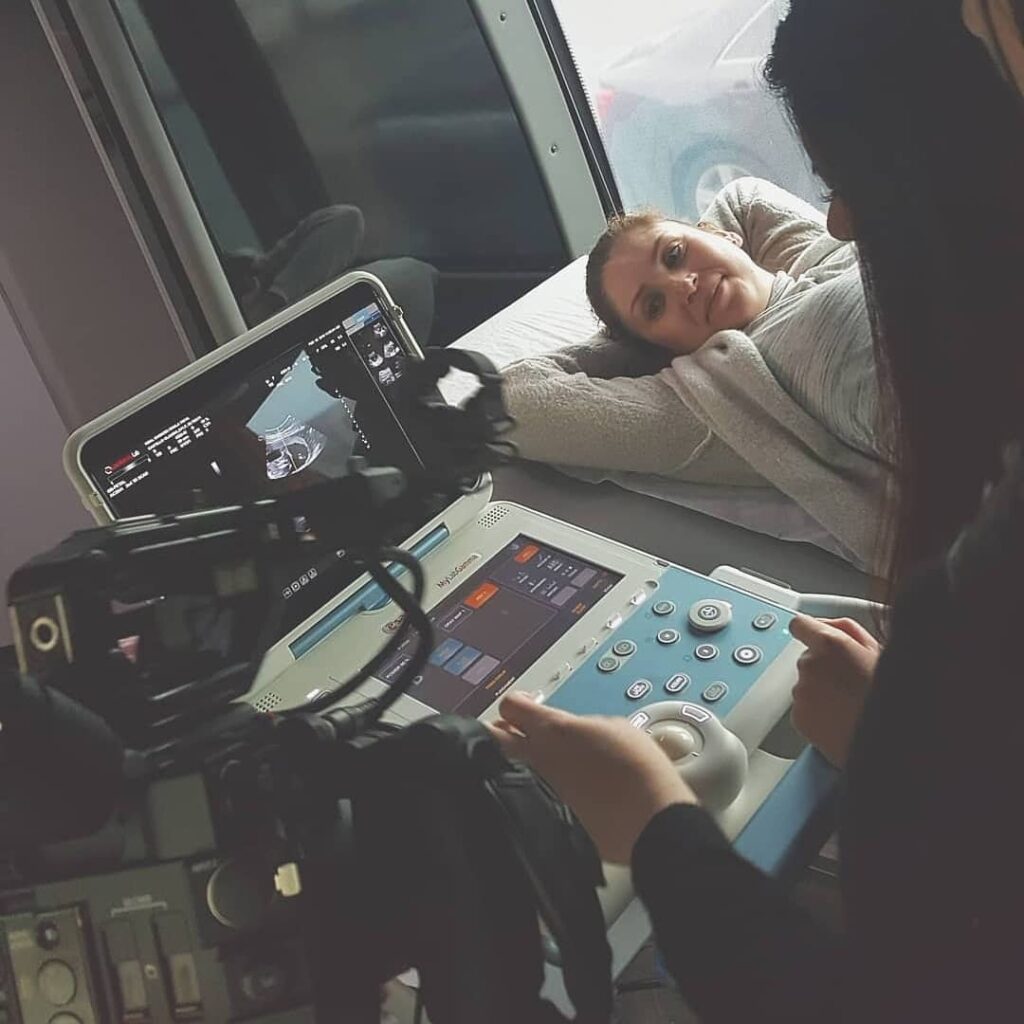
“I wanted to share the hope that the pro-life movement really gives,” she said. “When I first discovered all these ministries and all the pregnancy centers … and alternatives to abortion, it was just so inspiring. And it gave I felt a lot of comfort knowing that there are resources out there for women.”
Tracy’s Inspiration
Influenced by several other filmmakers who have raised awareness about important issues, Tracy looks up to artists like Alex Gibney who created Enron: The Smartest Guys in the Room and Going Clear: Scientology & The Prison of Belief.
“He really makes it very interesting and makes the educational process entertaining,” Robinson shared.
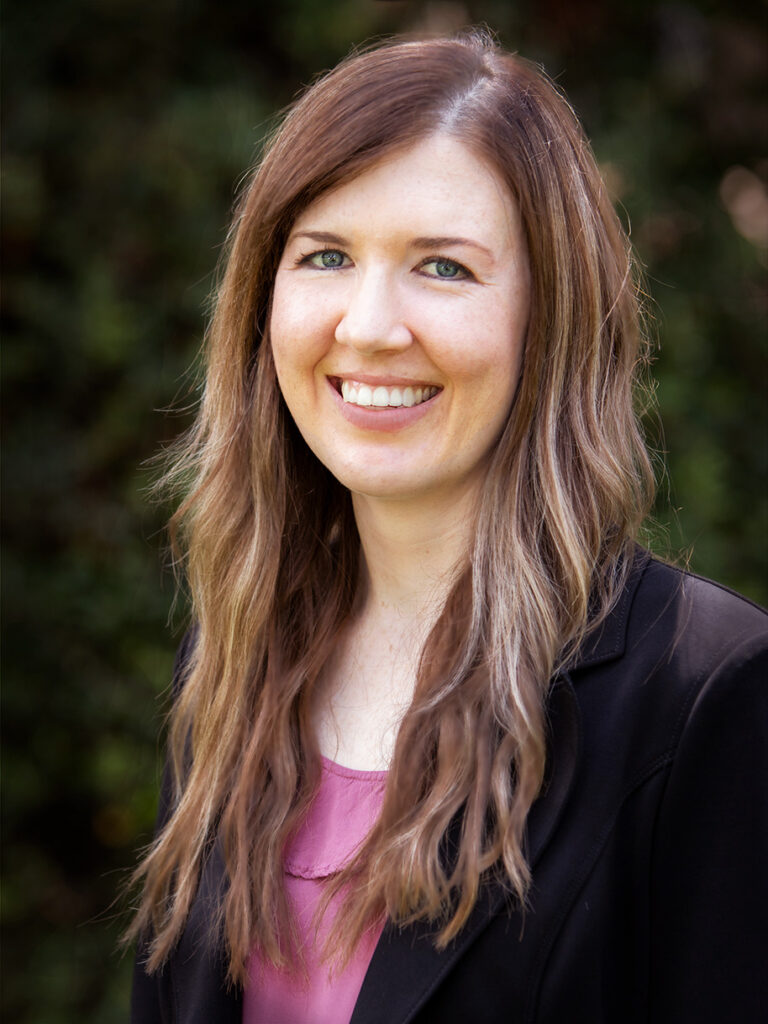
Another example Robinson follows is Stephanie Soechtig, director of Fed Up, an exposé of the food industry in the United States. Robinson actually reached out to Soechtig for advice on graphics and she responded, which Robinson was very grateful for.
Spreading the Truth About Abortion
Through The Matter of Life, Robinson wanted to create that same inclusive tone. The film gracefully avoids condemnation, but tells stories of people who have experienced a crisis pregnancy as well as doctors who’ve performed abortions. The reality of abortion is grave, but Robinson’s own convictions motivated her to spread this message.
“When you really learn the truth about abortion, you realize you want to prevent abortion from happening to every and anyone,” she said.
The Matter of Life has been screening across the United States and hits theaters nationwide May 16 and 17. Watch a preview of the film at WatchTheMatterofLife.com.
